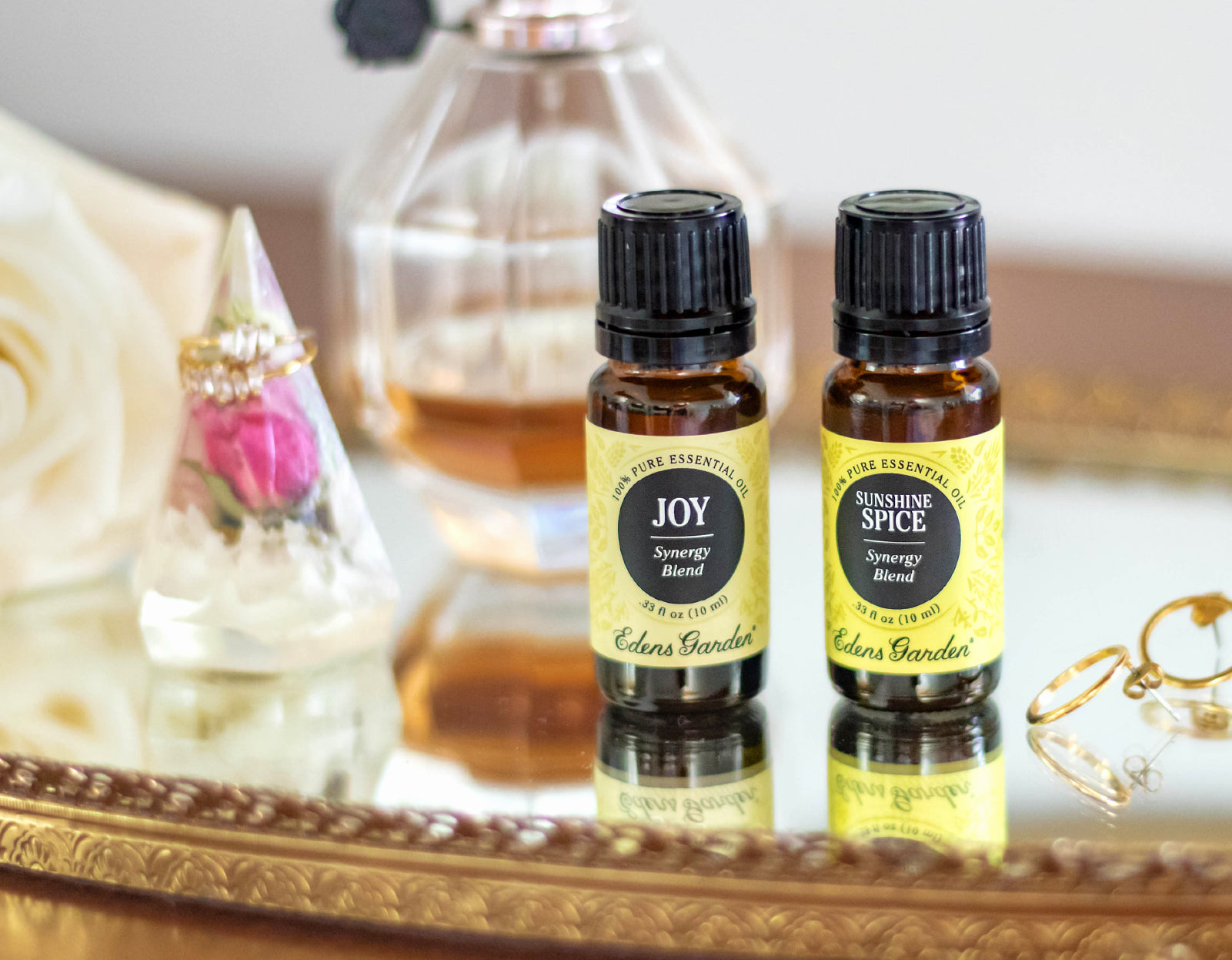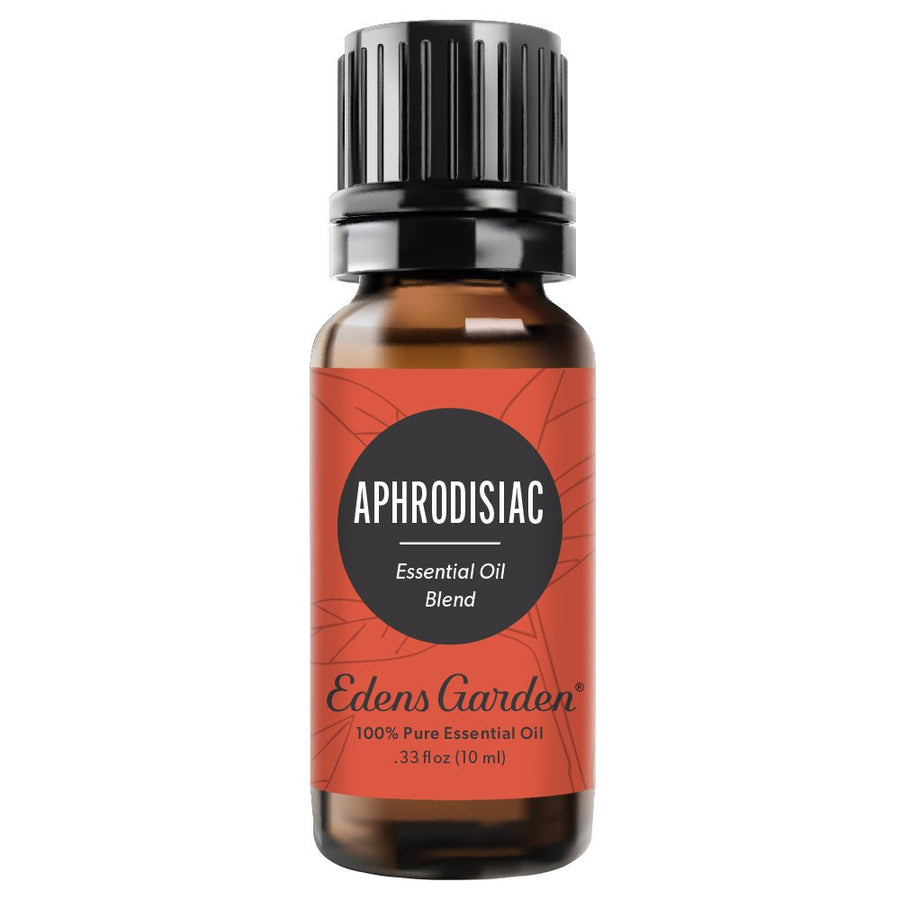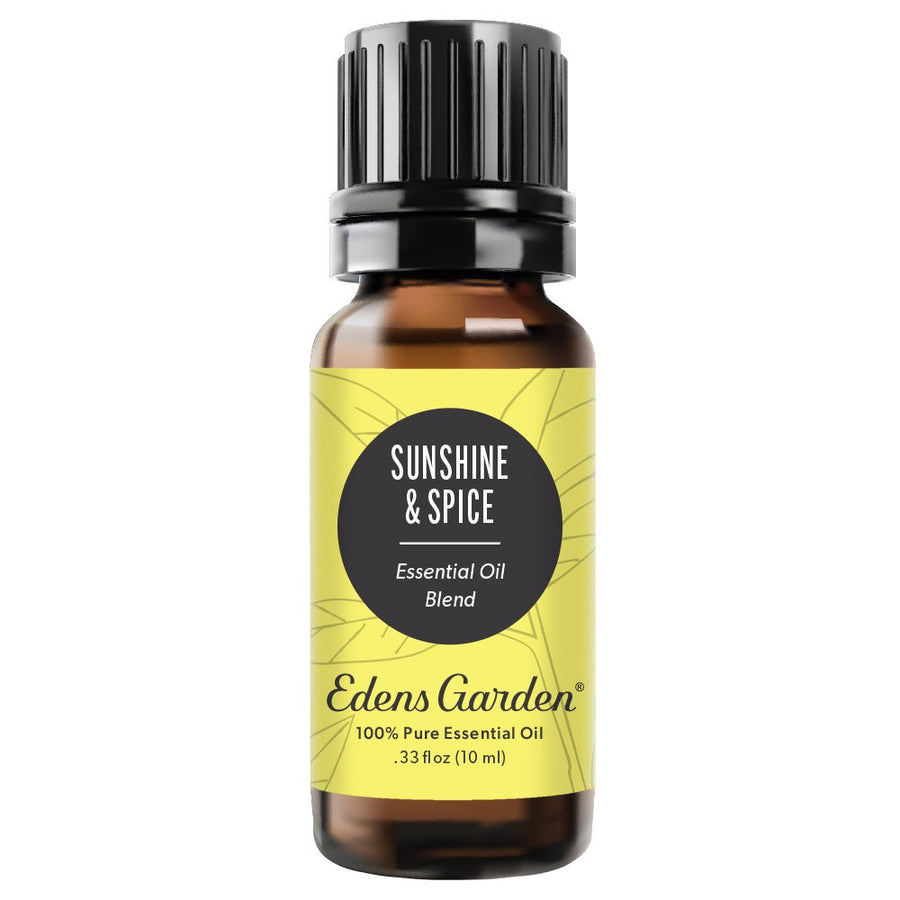The Difference Between Essential Oils & Fragrances

The beautifully complex aromas of essential oils often draw people to aromatherapy. However, despite the uptick in the popularity of essential oils, many people are still confused about the difference between fragrance oil vs essential oil.
As more people continue to uncover the power of aromatherapy, fragrance oils are commonly confused with essential oils. In this short guide, we’ll go over the difference between the two so that you can make the best choices when it comes to essential oil or fragrance oil in your daily perfume or aromas.
Synthetic Fragrance Oil & Pure Essential Oil Production
To understand the difference between fragrance oil and essential oil, we can simply look at how each is produced.
As is well known in the aromatherapy industry, purity is imperative to the quality of natural essential oils.
-
Essential oils are created with physical extraction processes, including steam distillation and cold processing. That means that the tools used to extract essential oil are water, heat and pressure—not chemical solvents.
-
They contain naturally occurring volatile compounds because there are no added stabilizers or preservatives.
The essential oil industry is characterized by extensive testing. In addition, all of our essential oils are GC/MS tested before they are hand-poured and bottled.
A synthetic fragrance, however, does not require such rigorous testing. The FDA defines “fragrances” as a combination of chemicals that give each perfume or cologne its distinct scent.
-
Fragrance ingredients may come from petroleum or natural raw materials.
-
Typically, fragrances contain chemical components, including solvents, stabilizers, UV-absorbers, preservatives and dyes.
-
Whereas essential oils are derived from plant parts, fragrances are commonly a combination of chemicals.
-
Some fragrance oils contain a small fraction of essential oil, but the essential oil is adulterated and diluted.
-
Fragrance oils are synthetically made.
As you can see, fragrances are the result of chemical processes. While they may contain some natural ingredients, these are usually mixed with other ingredients to create the final product.
Another big difference? Essential oils will list their ingredients. Fragrances’ ingredient labels often simply read “fragrances".
Dangers Of Fragrances
We understand the appeal behind fragrances. While essential oils need to be diluted when used topically, fragrances are full of chemical compounds that can make them ready for application right out of the bottle.
However, there are some significant downsides to some fragrances and fragrance oils.
Used in perfumes, colognes and personal care products, the term “fragrance” can sometimes refer to phthalates.
-
Phthalates are chemical compounds most frequently used to give plastics more rigidity or flexibility.
-
The phthalate diethyl phthalate (DEP) is frequently used in fragrances to help the scent linger.
-
Phthalates have been linked to a swath of health concerns such as cancer and obesity.
A report by the Environmental Working Group found that 97% of Americans have some DEP in their system. The chemical has been linked to sperm damage.
According to the EWG, the average fragrance contains fourteen chemicals not listed on the label. When sprayed or applied, many of these undisclosed chemicals are inhaled and absorbed through the skin. Over time, the chemical components accumulate in the body and result in health issues.
Fragrance Oil FAQs
Now you understand some of the downsides behind perfumes, aerosols and other fragrances. However, you may still be wondering if fragrance oils can be used like essential oils. After all:
-
They come in little bottles, just like essential oils
-
Some are phthalate-free
-
They may even include dilution ratios
So is a fragrance oil the same as an essential oil?
Recently, there has been some controversy over companies claiming to carry essential oils when, in fact, they sell synthetic fragrance oils or highly diluted essential oils. These products do not impart the same benefits as natural essential oils.
At Edens Garden, we encourage examining the quality of your oils before buying them.
In the meantime, we’ll answer some FAQs about fragrance oils.
1. Are Fragrance Oils Stronger Than Essential Oils?
The short answer? No. Essential oils are highly concentrated, potent substances that need to be diluted at the proper ratio to ensure safety when applying topically or diffusing.
Fragrance oils are not inherently stronger than essential oils. They are simply formulated with synthetic chemicals for a variety of reasons—whether to give them their fragrance, prolong their shelf life, or give them more staying power when applied on the skin.
2. Can You Mix Fragrance Oils With Essential Oils?
Some might want to counteract fragrances’ potentially harmful effects by combining them with essential oils—or you may simply be interested in adding Cinnamon essential oil to your apple pie fragrance oil because they seem like a natural pair.
However, we advise against this.
You may not understand the ingredients in a fragrance oil, or how it would react with an essential oil.
Remember that it’s completely safe to blend essential oils together!
3. Can You Use Fragrance Oils In A Diffuser?
Putting fragrance oils where you’d put your essential oils—in a diffuser, on sensitive facial skin, etc., is not advised. You don’t want to expose sensitive skin or mucous membranes to ingredients you don’t fully understand.
When it comes to fragrance oil vs essential oil in a diffuser, there’s no comparison.
Essential Oils As Natural Perfume
Instead of trying to read through the lines of synthetic perfume labels, use essential oils to add an aromatic touch to your daily routine.
In addition to single oils, we offer a range of essential oil blends that work as natural aromas. Below are some of our favorites:
1. Aphrodisiac
Whether you’re looking to connect with yourself or your honey, Aphrodisiac synergy blend helps you to feel beautiful. Indulge your senses with a blend of the following oils:
-
Lavender
-
Sweet Orange
-
Tangerine
-
Litsea
-
Copaiba
-
Vetiver
-
Clove Bud
-
Amyris
-
Lime
-
Ylang Ylang
-
Patchouli
-
Geranium
-
Damiana
-
Jasmine
-
Rose
Bright, floral and musky all at once, this blend helps you let go and embrace your wild side. Dilute with a carrier oil at a ratio of 3-5% for body application, or pick up one of our pre-diluted Roll-On essential oils.
2. Aromance
A lush, multi-layered blend, Aromance is different from our Aphrodisiac synergy blend. It can intensify what we see, feel, taste, touch and smell.
With just five components—Sweet Orange, Patchouli, Ylang Ylang, Sandalwood and Jasmine—it reminds us of the beauty in simplicity.
Aromance can be almost magical in its ability to heighten sensual awareness.
3. Harmony
Ushering in a sense of peace, Harmony soothes the strain of miscommunication and eases the frustrations of friction. Its tranquil aroma encourages calm and quiet while dispelling imbalance.
This aroma contains sweet, herbaceous and subtly smoky oils:
-
Lavender
-
Cedarwood
-
Moroccan Rosemary
-
Clary Sage
-
Sweet Marjoram
-
Geranium
-
Chamomile
Harmony is especially effective in instilling wholeness in your home, workplace, relationships and self.
4. Joy
Whatever your most joyous moments are, we all deserve a few more. Joy can help you recall those happy and beautiful moments and inspire new ones with its citrusy and floral aroma.
With notes of fruits including Sweet Orange, Lemon and Tangerine, as well as sophisticated Jasmine and Damania, Joy is sweet and uplifting.
5. Sunshine Spice
With a powerful citrusy and peppery aroma, Sunshine Spice is a favorite by almost anyone who encounters it.
It contains:
-
Sweet Orange
-
Cinnamon Bark
-
Cinnamon Leaf
-
Gurjun Balsam
-
Camphor
-
Eucalyptus
Like most of our synergy blends, Sunshine Spice is as wonderful in a diffuser as it is as a signature aroma!
Demystifying Fragrance
At Edens Garden, we care about what goes into beauty and skincare products. Our blog and FAQ are go-to resources for understanding the truth behind essential oils and other products. That same commitment goes into our products, which are formulated from indigenous plants and third-party tested to ensure their quality.
Sources:
- “Phthalates.” FDA. https://www.fda.gov/cosmetics/cosmetic-ingredients/phthalates
- “Diethyl Phthalate.” Environmental Working Group. https://www.ewg.org/skindeep/ingredients/701957-DIETHYL_PHTHALATE/








Leave a comment (Comments will be approved before showing up)